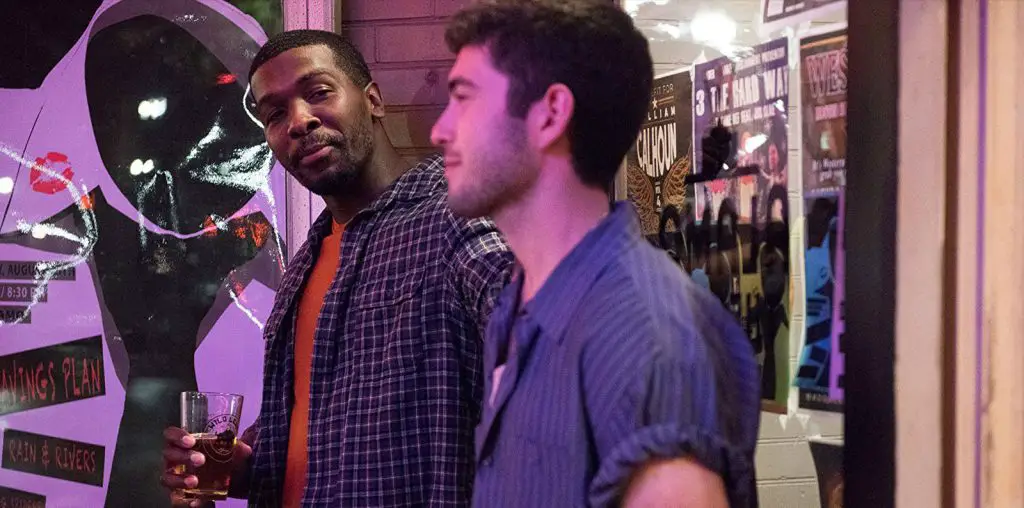
“The Accountant” takes place on a large Southern farm. Although it’s filled with grand fields and wide open space, this farm feels small and claustrophobic. In fact, it feels like the stage. As I was watching this film, I felt as if I were at the theater, maybe off-Broadway somewhere. In particular, I was reminded of Edward Albee.
Writer/Director Ray McKinnon plays the Accountant. With his big sideburns, his quaffed pompadour, and his thin face, the Accountant is quite an eccentric. He drives up to the farm in a 1935 Chevy Truck; he emerges clad in a dusty old brown suit, as if he were a creature from another era altogether.
David O’Dell (Eddie King), a farmer, is in a lot of trouble financially. He’s steeped in so much debt that he cannot afford to maintain his family’s fifth generation farm. Tommy (Walton Coggins), his less idealistic, more modernized brother, is responsible for bringing in the Accountant. Once he adds up the facts and figures, the Accountant tries to find a way to save the O’Dell Farming Dynasty. The schemes and solutions he concocts are of a frightening nature, involving possibly the murder of Mrs. O’Dell in order to benefit from her life insurance policy.
Nothing ever really happens in “The Accountant.” This film is all talk. Ray McKinnon’s darkly-comic analysis of an incarcerated Southern culture is not unlike Edward Albee’s observations about the captivity of New York City’s unsuspecting inhabitants in his one act play, “Zoo Story.” The Accountant himself shares certain similarities with Albee’s aggressive vagrant Jerry. Just as Jerry was trying to force the unsuspecting Peter see his cage, the Accountant tries to do the same for David O’Dell.
The Accountant, in his ramblings, believes the United States to be involved in a conspiracy against the South. Southern culture is disappearing. He forces David to form doubts about his idol, Billy Bob Thornton. Is he even a real person? Or has Thornton just been a creation of the corporate establishment?
Ray McKinnon, himself a native of Georgia, may be sincere with the messages contained within his story, but his methods of translating them to the screen are questionable. What we have here is essentially a stage play occupied by three characters who drone on and on with one speech after another for thirty-eight straight minutes. It feels flat. As a result, “The Accountant” fails to live up to its potential. While it’s crisply and sharply shot on 35mm, and in widescreen, the film itself lacks visual interest. The compositions are rather bland and two-dimensional. It would have been a much more absorbing experience had McKinnon chosen to go a step further and taken advantage of the tools of cinema, in order to create a more involving world for his quirky characters to occupy.
